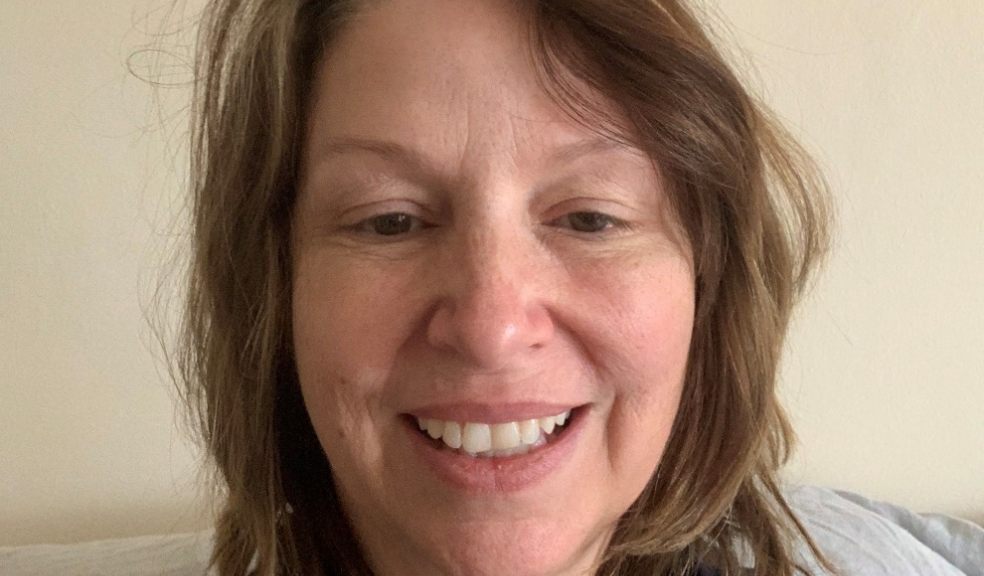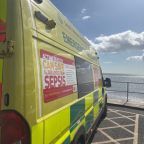
First Exeter patients start world’s largest trial of COVID-19 treatments
Patients in Exeter with COVID-19 are being recruited to the largest clinical trial in the world to investigate existing medicines which might be effective against the disease.
The trial, known as the Randomised Evaluation of COVid-19 thERapY (RECOVERY)trial, has been rolled out across the UK [or was set up in just ten days] and already fifteen patients have been recruited in Exeter. The trial is being run through a strong partnership between the University of Exeter and the Royal Devon & Exeter NHS Foundation Trust. Exeter is one of the 157 trial centres being coordinated nationally by researchers from the University of Oxford. There are currently no specific treatments for COVID-19. It is possible that some existing drugs usually used for other conditions may have some benefits – but they may not. As they are already approved for other uses, the trial is able to start more swiftly than for new drugs which would need rigorous safety testing first. The new trial will provide doctors and the health service with information they need to determine which treatments should be used.
The treatments initially included in the study have been recommended by an expert panel that advises the Chief Medical Officer in England. These are Lopinavir-Ritonavir, normally used to treat HIV, the steroid dexamethasone, which is used in a wide range of conditions to reduce inflammation, and hydroxychloroquine, which is mainly used as an anti-malarial drug and the commonly-used antibiotic azithromycin. The safety and side effects of the drugs are well known. The trial has seen research teams at the RD&E uniting to form a single workforce to ensure that patients have the best possible access to the ground-breaking COVID -9 studies being undertaken. The aim is to promote the most positive outcomes for our patients following infection In the future, the RECOVERY trial may be expanded to assess the impact of other potential treatments as they become available.
Dr Ray Sheridan, Consultant at the Royal Devon & Exeter NHS Foundation Trust and Associate Clinical Professor at the University of Exeter, said: “This trial is an incredibly exciting development in the battle against COVID-19. In Exeter, the strong and long-standing relationship between the University and the RD&E health trust means our clinicians and scientists work incredibly well together. We don’t yet know if the drugs will work, but it’s heartening to be part of promising research on this international crisis. As a frontline clinician, I beg everyone to do their part to buy us time to develop this research. Stay home, wash your hands and when you must go out, observe social distancing measures.”
The trial will be open to adult inpatients at the Royal Devon & Exeter Hospital who have tested positive for COVID-19, and who have not been excluded for medical reasons. All patients will receive the usual standard of care. Patients joining the trial will be allocated at random by computer to receive one of the medicines being studied in addition to standard care, or standard full usual care n. This will enable researchers to see whether any of the possible new treatments are more or less effective than those currently used for patients with COVID-19.
Matt Hancock, Secretary of State for Health and Social Care, said last week; “We need more patents to volunteer to be part of these trials because the bigger the trial, the better the data and the faster we can roll out the treatment – if, and only if, it’s proven to work. But for now, the only way to protect yourselves and your family from this disease is to stay at home.”
Peter Horby, Professor of Emerging Infectious Diseases and Global Health in the Nuffield Department of Medicine, University of Oxford, and Chief Investigator for the trial, said: “‘There is an urgent need for reliable evidence on the best care for patients with COVID-19. Providing possible new treatments through a well-designed clinical trial is the best way to get that evidence. Adults admitted to hospital with COVID-19 should be offered the opportunity to participate in this trial and contribute to improving care for everyone. All patients will receive the standard full medical care, regardless of which treatment group they are placed in.”
Martin Landray, Professor of Medicine and Epidemiology at the Nuffield Department of Population Health, University of Oxford, and Deputy Chief Investigator added: “The streamlined design of this clinical trial allows consenting patients to be enrolled in large numbers easily and without compromising patient safety or adding significantly to the workload of busy hospitals and their staff. In this way we can rapidly assess the value of potential treatments for COVID-19 and provide reliable information on the best ways to treat patients with this disease.”
The new trial has been classed as an Urgent Public Health Research Study. It is one of a round of projects to receive £10.5 million as part of the £20 million rapid research response funded by UK Research and Innovation, and by the Department of Health and Social Care through the National Institute for Health Research.
The Chief Medical Officers of England, Wales, Scotland and Northern Ireland, and the NHS Medical Director have written to NHS trusts asking them to fully support the new trial.
Claire, 56, among first patients on Exeter arm of RECOVERY trial into COVID-19
At 56 years old, Claire Fuller did not see herself as particularly high risk of developing COVID-19 despite her mild and well-managed asthma – yet she was among the first patients to be recruited and treated in the Exeter arm of the RECOVERY trial.
A healthy and active global manager for a veterinary company, Claire, from Tiverton in Devon, found herself in isolated treatment at the Royal Devon & Exeter Hospital (RD&E), on oxygen and facing conversations about her options for resuscitation.
Claire’s ordeal started ten days after developing a dry cough, when her breathing deteriorated so severely that she was rushed to hospital by ambulance. “I’d got to the point where I could barely talk and I could hardly walk across the house without feeling faint,” said the mother of two grown-up children “It was really scary how it just suddenly turned.”
Once in hospital, Claire’s COVID-19 test was returned positive, and she was offered the opportunity to sign up to the RECOVERY Trial – A national study led by University of Oxford & run locally In Devon through a partnership between RD&E and University of Exeter. “I was more than happy to sign up,” said Claire. “I know about clinical trials through my work, and I felt it was the least I could do.”
Claire was assigned the anti-malaria drug hydroxychloroquine, and experienced a tingling in her lungs, although she said it was impossible to establish whether that was a result of the treatment. “It’s hard to know whether any change is related to the drug or the virus,” she said. “It took a couple of days and I started to feel better, but I may never know if that would have happened anyway.”
After five days in hospital, Claire was allowed to return home. She said: “It was such a relief to get home, but I’m still very weak. I need to sleep after having a shower. It may take up to four weeks for my lungs to recover fully.
“The staff at the RD&E were absolutely fantastic, but they’re working under very difficult circumstances. They’re learning with each patient that comes in. They’re having to treat people in isolation conditions – so they wear masks and gloves and only stay long enough to do observations. That’s difficult for everyone involved.
“This virus can strike anyone, and people can deteriorate so rapidly. Please just stay home and do everything possible to avoid catching it I’d urge anyone who does end up in hospital to sign up to the RECOVERY trial. The more people who do so, the greater the chance of finding effective treatments.”

















